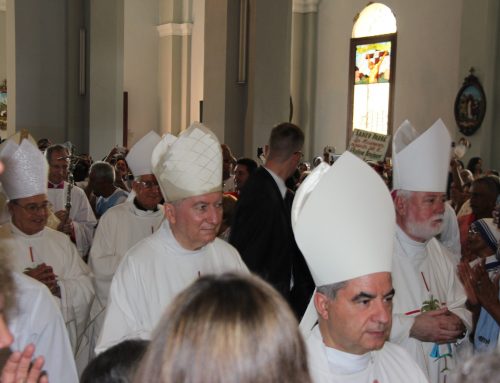Vision after the Liberation of Mosul and the Nineveh Plain Towns
Introduction
In the 1930, Christians were about 5% of Iraq’s population and used to have a vital presence in the most important cities of the country. However, the number has sharply declined after the USA invasion of Iraq in 2003 due to the subsequent chaos of sectarian “quotas ”, the security deterioration as well as threatening and blackmailing Christians by terrorists, which makes the situation worse. For example – the kidnapping and murder of Bishop Faraj Rahho of Mosul and other members of the clergy in 2008; destruction of Our Lady of Deliverance Church (Sayedat Al-Najat Church, Baghdad) in 2010; the invasion of Mosul and Nineveh plain by ISIS ( Daesh) in 2014, etc.
Mosul is the second largest city in Iraq with a population of about two million, the majority of them Sunni Arabs. Until August 2014 it was also a home for Christians, Kurds, Turkmans, Shabak and Yazidis before ISIS invaded.
It seems that the region is moving toward a pre-prepared plan in order to fix the political situation in Iraq, in which Christians and minorities may not get what is needed to ensure their existence, survival and secure future. There might be a chance to invest in global sympathy because of their suffering, but the most urgent thing now is to put aside their differences and work seriously to achieve unity, cohesion and cooperation to safeguard their existence in this land since there are some “political hunters” trying to use them to obtain certain advantages. Christians risk becoming tokens of exchange for regional stability.
The political process in Iraq was not correct from the beginning since it was based on sectarian and partisan quotas, which created most of our problems. Indeed, this was contrary to the universally accepted fact that putting the right person in the right position, regardless of their affiliations and patronage was to be a concrete step to protect “our shared home” and toward a secure and prosperous future for a unique “multicultural” nation, all enjoying the same citizenship with its rights and obligations.
Therefore, in planning for the future of Mosul and the towns of Nineveh Plain we have to focus on the situation of Christians and minorities who were subjected to persecution and a genocidal (under the terms of the UN Convention on the Prevention and Punishment of Genocide) process. Freeing Mosul and Nineveh plain from ISIS might be a glimmer of hope for native residents to return home on condition that legal protection is provided for them, and also granting them the necessary time to re-build trust with their neighbours. Otherwise, the “hemorrhage” outflow of migration will continue, even from safe areas, which is a very serious situation.
What are the concerns and challenges after liberation?
We must be prepared to deal with certain issues after the departure of ISIS especially as we know Nineveh province is different from Anbar and Salah-Alddin due to its “mosaic composition”. Perhaps, we will go back a the storm of conflicts God forbid, even worse than before, if those in charge are not both strict and open-minded enough to “ diagnose” the reality and put things right taking the following into consideration:
- Adopting an open, wise and unified vision among the political parties. Such a vision must be based on the reality and able to gain respect for administering security, politics and management fairly.
- Understanding that the military victory over the ISIS jihadists does not mean solving the problem is solved – we must continue dismantling extremists and their widespread ideology.
- Being prepared to contain the outcome of the current humanitarian situation of millions of refugees which is going from bad to worse owing to the lack of proper housing, health care , schools, nutrition and jobs. This situation might degrade and create new terrorist groups.
- Dealing logically with the consequences of conflict, such as taking revenge and fighting for leadership and ownership of seized properties. So it is crucial to ensure that each person is fairly given his rights .
- Being aware of the demographic changes, including internal and regional. Also the international ambitions of the “players” who already have a roadmap for their future gain and advantage, even before the liberation of Mosul and Nineveh Plain.
- Using the economic recession and “corruption” in Iraq as an excuse to delay reconstruction and the return of displaced people (DIPs) to their hometowns.
Requirements for Reconstruction and the return of Displaced (IDPs)
- Provide international cover to protect these areas after the liberation (e.g. United Nations Monitoring)
- Impose a state of emergency in Mosul City and the Nineveh Plain.
- Appoint new Imams of mosques who are well-known for being open minded and moderate.
- Emphasize the role of media in spreading a culture of openness, tolerance, acceptance of others, promotion of co-existence, stability and cooperation to confront, extremism, hatred and violence.
- Set up a reliable source of funds for the reconstruction and development of the region to give people hope to return and settle.
- Establish a relief and humanitarian assistance body in order to speed up the return of IDPs, once the infrastructure is rebuilt.
- Remove the Nineveh Plain issue from the list of conflicts between the Central Government and Kurdistan Regional Government (KRG).
- Consider self-administration as a solution for Christians of the Nineveh Plain at this stage.
- Give all citizens the right to take part in a referendum, after allowing them time to settle and to establish conditions that provide security. They can then choose whether they want to be associated with the central government, KRG or the supposed Sunni region!
Chaldean Catholic Patriarch Louis Raphael Sako


